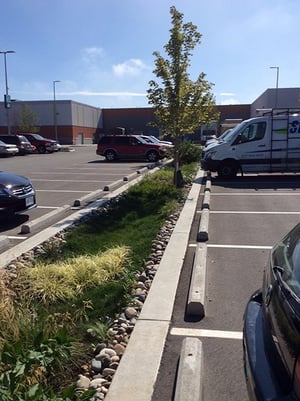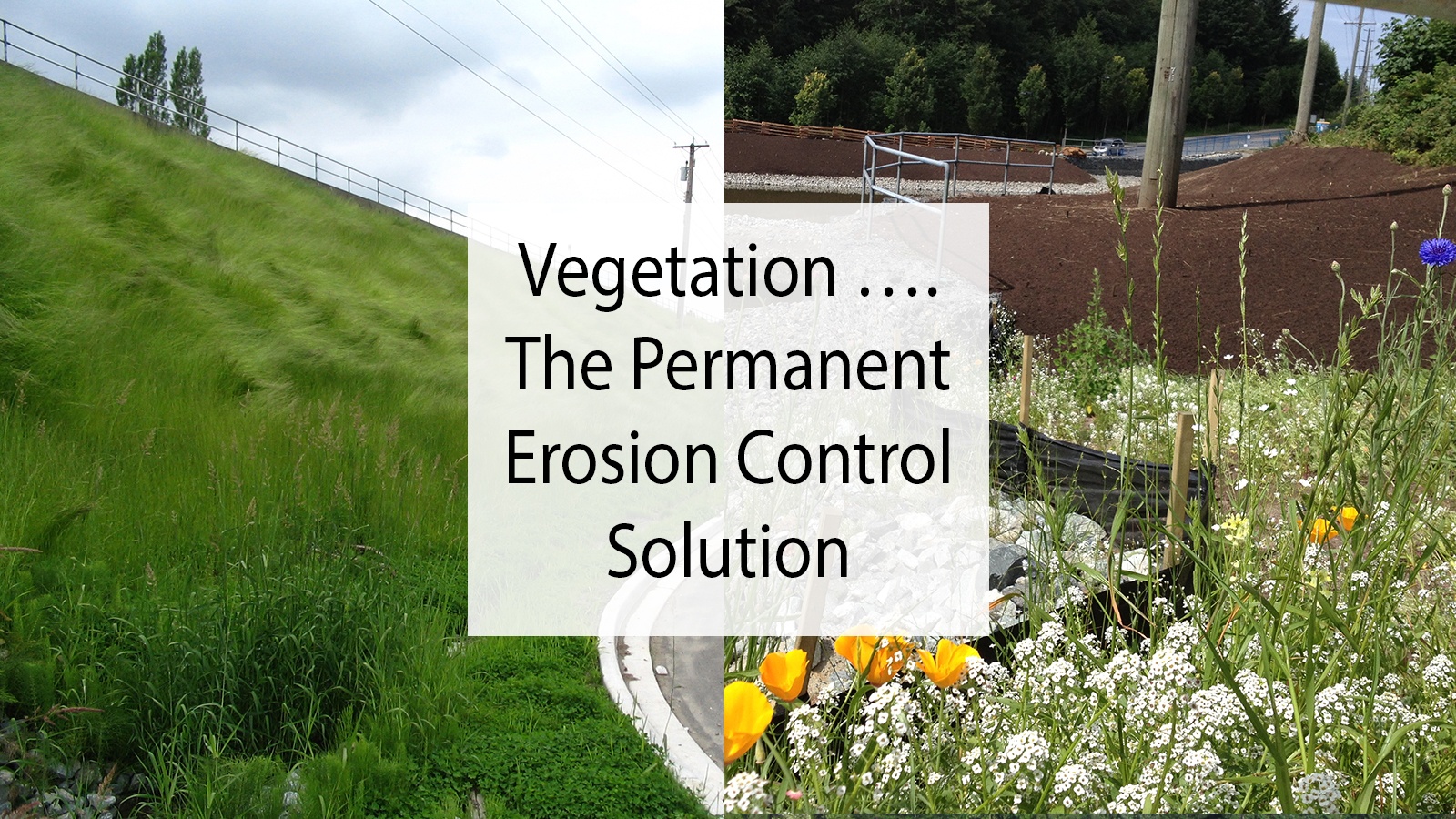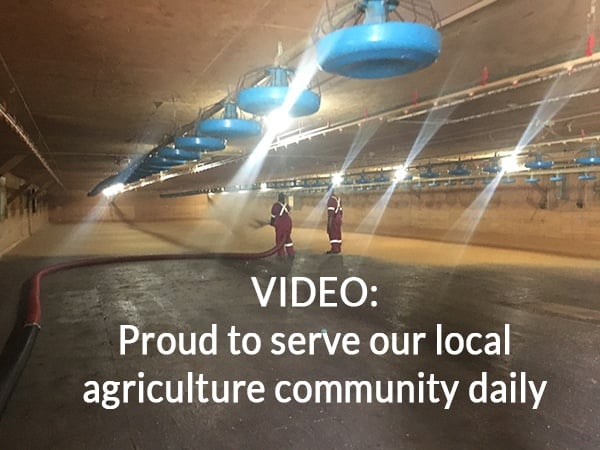Imagine a city virtually devoid of plants - just steel, glass, asphalt and concrete. Would you want to live there? Probably not! Now imagine a city where plants are everywhere – on the ground, on the walls, and atop our
buildings. Would you want to live there? The odds are that not only you would, but that you’d be willing to pay more to live in such a community.
 Regulations requiring stormwater management are fueling renewed efforts to invest in green infrastructure on public and private property. As more jurisdictions look to manage stormwater by using green infrastructure technologies, the demand for urban forests, bioswales, green roofs and walls and other supportive
Regulations requiring stormwater management are fueling renewed efforts to invest in green infrastructure on public and private property. As more jurisdictions look to manage stormwater by using green infrastructure technologies, the demand for urban forests, bioswales, green roofs and walls and other supportive
technologies grows.
Stormwater is a serious challenge with annual discharges of more than 10 trillion gallons. Stormwater contributes to flooding, combined sewer overflows, erosion and impairment of water quality. Just look at the streets and think about the poisonous concoction of salt, brake lining residue, silt, rubber, pesticides, and animal feces which is urban stormwater – then add raw sewage to the mix and presto - you’ve got combined sewer overflow. When it rains, or the snow melts, this highly contaminated liquid discharges into our lakes, rivers, streams and estuaries, or perhaps, a large multi-billion dollar holding tank only to be discharged later. There is no ‘away’ for stormwater! Our growing awareness that our use of plastic micro beads wash back into our food chain and ultimately into our bodies demonstrates clearly that there is no ‘away’.
Reducing stormwater substantially through onsite capture, retention and treatment, can’t solve the plastic issue, but
does go a long way to addressing many of these problems. Moreover, when we address stormwater management by investing in green infrastructure solutions, we are also able to address other pressing issues in our communities, such as the urban heat island effect which contributes to air quality pollution, the need for employment, access to
food, and the unhealthy lack of green space. Taxpayers can get far more bang for their public buck by investing in widespread green infrastructure implementation than huge holding tanks to capture stormwater or new
power plants for air conditioners to fight the worsening urban heat island effect.
In many cases, green infrastructure can also deliver value by offsetting or right sizing the use of grey infrastructure. As the case study of a modular green roof in Denver in this issue illustrates, space used for a large cistern in the basement can’t be rented as parking space and that lost revenue adds up. The multiple benefits of large green
space are brought to light in an article by Emma Tamlin, Assistant Editor, on mega projects in Chicago, San Francisco and a proposed Rail Deck Park in Toronto pictured on the cover. These projects demonstrate tangible environmental benefits, and their social and artistic amenities also fuel nearby development projects. Chicago’s Millennium
Park has even become the primary tourist attraction with its mix of green space, iconic sculptures, gardens, fountains and architecture.
The capture and reuse of stormwater is also a viable strategy in many projects, even for irrigating green walls, as the article on Whole Foods in Chicago by Amber Ponce illustrates. The beneficial harvesting of water also extends to Quebec’s latest rooftop farm, as reported by Joyce McLean, our Associate Editor. This innovative rooftop
farm manages stormwater and generates both profits and happy customers. The fine act of designing stormwater retention with the need for supplemental irrigation is explored by Dr. Brad Rowe. He reveals some
of the pros and cons of the interrelationship between plants, assemblies and irrigation methods.
Policy is also about stormwater regulation, and our On the Roof With discussion piece features some tough questions about the trends in civil engineering practice and green infrastructure. Elizabeth Fassman Beck of
Stevens Institute of Technology and Mike Hardin of Geosyntec share their insights on stormwater civil engineering practice. The new Living Architecture Performance Tool, explains Rohan Lilauwala, provides policy makers with a vehicle to connect regulations and incentives directly to green roofs and walls. The 110 credit system,
based very much on LEED and SITES, provides a much needed performance framework for the industry. We are looking for policy makers and organizations to lead by piloting Version 1.0 of the Living Architecture Performance Tool in the next few years. This will help us fine tune the system and drive demand for better performing green roofs and walls. If you are interested in learning more about how the LAPT certification can help, please connect
with us.
As we enter the spring thaw, give some thought to where the stormwater is going and help redirect it toward green
infrastructure projects that can deliver multiple benefits in our communities. We really can design and build the kind of cities that we want to live in, for ourselves, our families and our communities.
Sincerely yours,
Steven W. Peck,
GRP, Honorary ASLA
Founder and President
{editor's note: This is "From the Founder" in the Stormwater Management issue of Living Architecture Monitor. We will be sharing the above mentioned articles in upcoming posts. To read the full issue of Living Architecture Monitor, click on the link below}
Source: 2018 Stormwater Issue of the Living Architecture Monitor Published by Green Roofs for Healthy Cities



